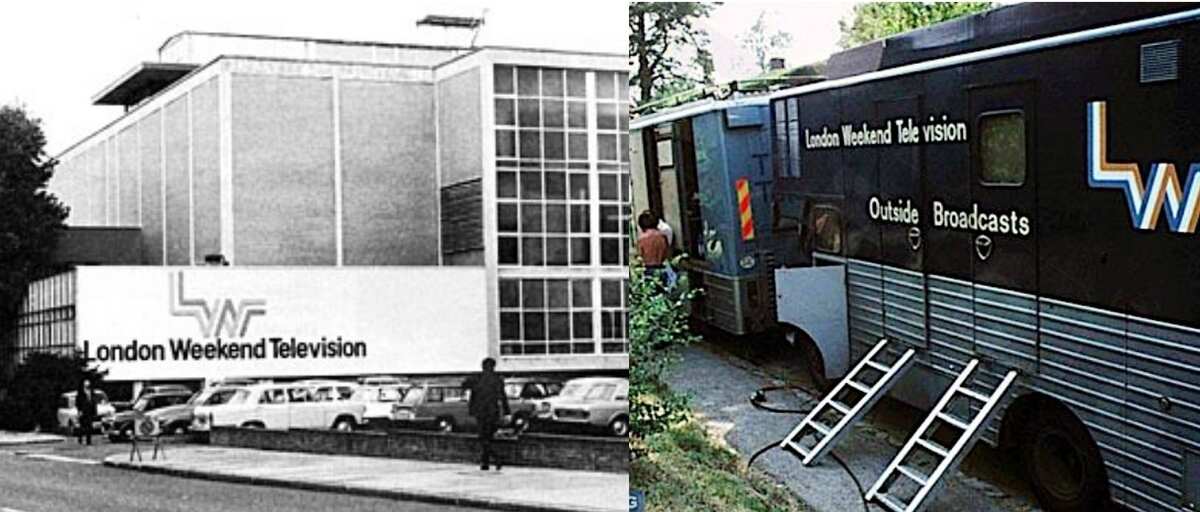London Weekend Television (LWT) stands as a monumental pillar in the annals of British broadcasting history. As the ITV network franchise holder for Greater London Weekend Television and the Home Counties during weekends, LWT carved an indelible niche in the television landscape. From its inception in 1968, LWT has been synonymous with innovation, quality programming, and cultural impact.
Historical Overview
The Genesis of LWT
London Weekend Television was born out of the 1967 Independent Television Authority (ITA) Television round. It was granted the weekend franchise for London, making it unique as the only region to retain a separate weekday and weekend franchise. LWT commenced broadcasting on August 2, 1968, promising to revolutionize weekend television viewing.
The Evolution of LWT
Throughout the decades, LWT adapted and evolved, reflecting its audience’s changing tastes and preferences. The 1970s and 1980s were particularly significant, marked by groundbreaking shows and a bold approach to programming. LWT’s ethos was to provide diverse, high-quality content that entertained, informed, and sometimes challenged societal norms.
Landmark Productions
LWT was a trailblazer in producing some of British history’s most memorable television shows. Iconic series such as “Upstairs, Downstairs,” “The South Bank Show,“ and “London Weekend Television Burning“ originated from LWT’s studios. These programs garnered critical acclaim and enjoyed immense popularity among viewers.
Cultural Impact London Weekend Television
A Mirror to Society
LWT’s programming often served as a mirror to society, reflecting and addressing contemporary issues. Shows like “World in Action“ tackled pressing social and political matters, earning LWT a reputation for fearless and investigative journalism. The network’s commitment to quality content made it a trusted source of information and entertainment.
The Talent Incubator
LWT was instrumental in nurturing and showcasing talent. Many renowned actors, directors, and writers found their footing at LWT. The network provided a platform for creative expression, leading to the emergence of household names and influential figures in the entertainment industry.
Iconic Shows and Personalities
The Stars of LWT
The pantheon of LWT stars includes a constellation of celebrated personalities. From the charismatic David Suchet in “Poirot“ to the dynamic Janet Street-Porter, LWT’s shows were graced by some of the finest talents. These individuals brought characters to life, leaving an enduring legacy in viewers’ hearts.
Memorable Moments
LWT is remembered for numerous unforgettable moments that left an indelible mark on popular culture. The electrifying performances of the Sex Pistols on “The London Weekend Television“ the dramatic narratives of “The Adventures of Black Beauty,“ and the enthralling episodes of “Agatha Christie’s Poirot“ are but a few examples of LWT’s rich tapestry of entertainment.
Technological and Logistical Innovations
State-of-the-Art Facilities
LWT was at the forefront of technological advancements in television production. The network’s studios, mainly The London Weekend Television Studios on the South Bank, were equipped with cutting-edge technology that enhanced the quality of its broadcasts. This commitment to innovation ensured that LWT’s content remained at the pinnacle of television production standards.
The Distinctive Branding
LWT’s branding was distinctive and memorable. The iconic LWT logo, with its vibrant and dynamic design, became a symbol of quality and reliability. The network’s trailers, adverts, and announcers, such as Peter Lewis, added a unique flair to its presentation, further cementing its identity in viewers’ minds.
The Decline and Legacy
The End of an Era
The dawn of the 21st century marked the beginning of significant changes for LWT. In 2002, LWT ceased to exist as an independent entity following its acquisition by Granada Television and the subsequent merger into ITV plc. This marked the end of an era, but LWT’s legacy continues to resonate.
Lasting Influence
Despite its dissolution, LWT’s influence endures. The network’s contributions to British television are celebrated and remembered through reruns, retrospectives, and the continued popularity of its iconic shows. LWT’s impact on the television industry and its role in shaping popular culture remain profound.
A Personal Anecdote
A Junior Journalist’s Dream
In the vibrant tapestry of LWT’s history, the personal stories of those who contributed to its legacy are poignant and inspiring. One such narrative is that of Edward Richardson, a junior journalist whose journey at LWT encapsulates the magic and allure of working within this iconic network. Richardson’s tale is a coming-of-age story shaped by the acts and emotions that defined his tenure at LWT.
The Enchantment of LWT
Edward Richardson joined LWT in the late 1980s, marked by the network’s continued evolution and creative dynamism. From the moment he stepped into The London Weekend Television Studios, Richardson was captivated by the energy and innovation that permeated the halls. The weekend buzz, the creative enthusiasm, and the dedication of his colleagues were unlike anything he had ever experienced.
A Love Affair with Broadcasting
Richardson quickly fell in love with the world of television broadcasting. He was enchanted by the intricate processes behind creating a succ essful show, from the initial brainstorming sessions to the final edits. As a junior journalist, he had the opportunity to learn from some of the best minds in the industry, honing his skills and finding his unique voice.
The Impact of Mentorship
One of the pivotal figures in Richardson’s journey was Ruth Anders, a seasoned producer at LWT. Anders recognized Richardson’s potential and took him under her wing, providing invaluable guidance and mentorship. Under her tutelage, Richardson learned the importance of storytelling, the power of visual media, and the impact of delivering news with integrity and passion.
The Pinnacle of Experience
One of Richardson’s most cherished memories at LWT was his involvement in covering the 1992 general election. The frenetic pace, live broadcasts, and critical nature of the coverage provided an exhilarating experience that tested his skills and stamina. Richardson’s contributions were well-received, earning him recognition and respect from his peers and superiors.
The LWT Alumni Network
Continuing the Legacy
Even after LWT ceased to exist as an independent entity, its alums have continued to make significant contributions to the broadcasting world. The network of former LWT employees remains a testament to the institution’s enduring legacy. Many have achieved great success in various fields, carrying forward the principles and standards that LWT embodied.
Reunions and Reminiscences
Former LWT staff reunions are filled with reminiscences of the golden days of broadcasting. These gatherings served as a reminder of the unique camaraderie and shared experiences that defined their time at LWT. The stories exchanged, laughter, and nostalgia underscore LWT’s profound crash on their personal and professional lives.
LWT in Retrospect
A Legacy of Excellence
Looking back, London Weekend Television stands as a beacon of excellence in the history of British television. Its commitment to producing high-quality content, pioneering spirit, and ability to adapt and innovate have left an indelible mark on the industry. LWT’s influence extends beyond its years of operation, continuing to inspire and shape the aspect of modern broadcasting.
Enduring Popularity
The enduring popularity of LWT’s shows speaks volumes about the network’s impact. Series like “Poirot,” “Upstairs, Downstairs,“ and “The South Bank Show“ remain beloved by audiences, both old and new. The timeless appeal of these programs ensures that LWT’s legacy continues to be celebrated and cherished
Conclusion
London Weekend Television’s storied legacy is a testament to its innovation, creativity, and cultural significance. From its inception in 1968 to its eventual integration into ITV plc, LWT has left an indelible mark on the broadcasting landscape London Weekend programming.









